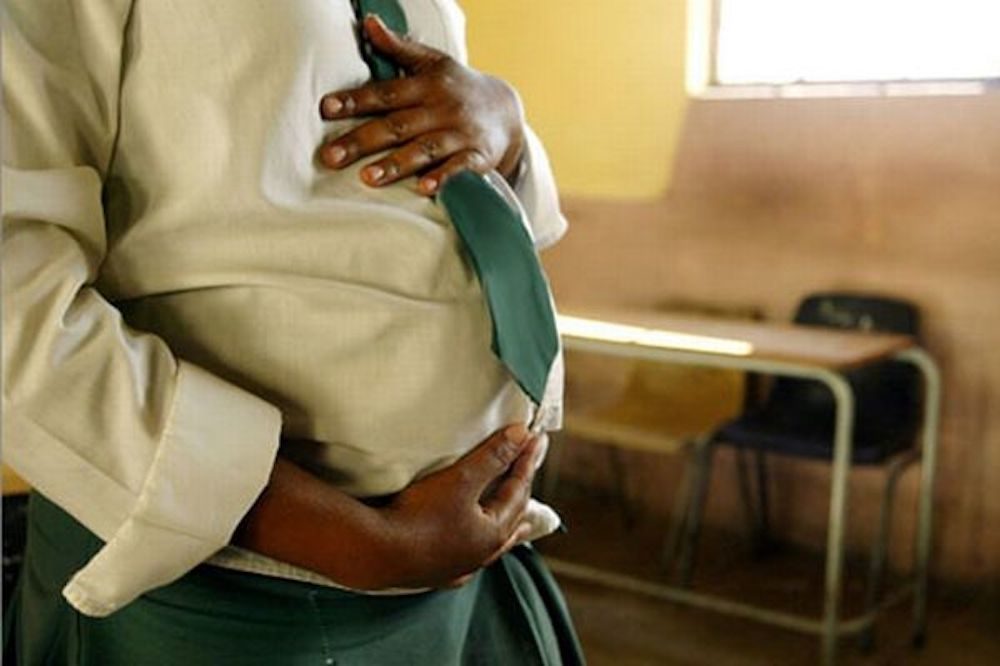In June, 2020, Kenyan media was awash with numerous stories of teenage pregnancies. Based on the statistics, the numbers seemed to be on an upward trajectory. This time round, it appears the news captured the national psyche and everyone wanted to weigh in on the issue. As usual, people were quick to apportion blame without digging deeper to unearth the causes and where possible suggest solutions that would help address the issue.
Poor parenting, lack of sexual education among teenagers, negative media influence and low moral standards were cited as the contributing factors to the rising cases of teenage pregnancies. The issue slowly ebbed away like a passing cloud each day and soon enough it became history. And just like that, what would have made for a serious national debate was buried in the sands of time and Kenyans moved on to more serious bread and butter issues.

This explains our culture as a Kenyan people where we are very quick to bury our heads in the sand every time a serious issue pops ups. Maybe this has to do with the fact that the problem hasn’t knocked on our doors yet and we see it as a distant problem not worth our time and breadth.
As we move on with on our lives, what we quickly forget is that teenage girls continue to suffer in silence and this consequently changes their lives drastically. The rising number of teenage pregnancies should be a wakeup call for all and sundry to address sexual reproductive health among girls and women. Sexual reproductive health should not be reduced to a “moral issue” but should be treated as a “policy issue” and be part and parcel of the health care system.
Many girls become young mothers during their teenage years because they find it hard to navigate through this stage. As such, they are forced to drop out of school to attend to their babies hence missing out on education. It is also important to note that being a mother at this stage is not easy because of the stigma that comes with it. When looked at the broader scheme of things, teenage pregnancies hinder girls from competing equally with their male counterparts whose lives go on uninterrupted. In turn, these girls cannot favorably contribute towards economic development in society thus revolving in the vicious cycle of poverty.
To effectively address the runaway problem of teenage pregnancies, we must employ new tactics. Already, there is a bill in parliament sponsored by Senator Susan Kihika.The Reproductive Healthcare Bill seeks to create awareness among school going children by providing adolescent friendly health education, information, and services- with parental consent. The bill also provides for vocational training, mentorship programs, spiritual and moral guidance, and counselling on abstinence, consequences of unsafe abortion, HIV, and substance use. It also mandates the government to integrate age-appropriate information on reproductive health into the education syllabus.
Senator Kihika’s bill has been hammered down by various groups on grounds that it is against African culture and religious beliefs. Whereas we should not abandon our religious and cultural beliefs, we should canvass objectively for a common ground that would be in the best interests of our children. This begs the question, would we rather than be set in our ways and continue to watch our daughters suffer? The Reproductive Healthcare Bill has been alleged to encourage teenage sex because it provides for access to reproductive health services for adolescent. This is not the case. In fact, creating awareness is a step in the right direction towards addressing the elephant in the room. Having adolescent friendly reproductive health information should not be considered as weakening the moral fiber in society, rather, it should be deemed as empowering adolescents to make informed decisions as is the case in Sweden.
As a nation, we must be alive to the fact that the more we pussyfoot through this issue, the more we are creating room for more problems such as unsafe abortions which could be fatal. Look! Statistics indicate that an average of seven women and girls die each day from unsafe abortions.
My clarion call would be that all stakeholders should work together towards developing workable solutions, suffice to say there is a need for collective responsibility. We should try as much as possible not to water down proposals without giving suggestions as it is akin to shooting ourselves in the foot. We must note that NGOs and other stakeholders have tried working towards reducing teenage pregnancies but without government buy in not much can be achieved.
As we think of the Reproductive Healthcare Bill, we must not forget the fact that the Constitution of Kenya, 2010 provides that everyone has the right to the highest standard of health including reproductive health. For this reason alone, the government owes a duty to the young girls to ensure that their reproductive health is properly catered to.

